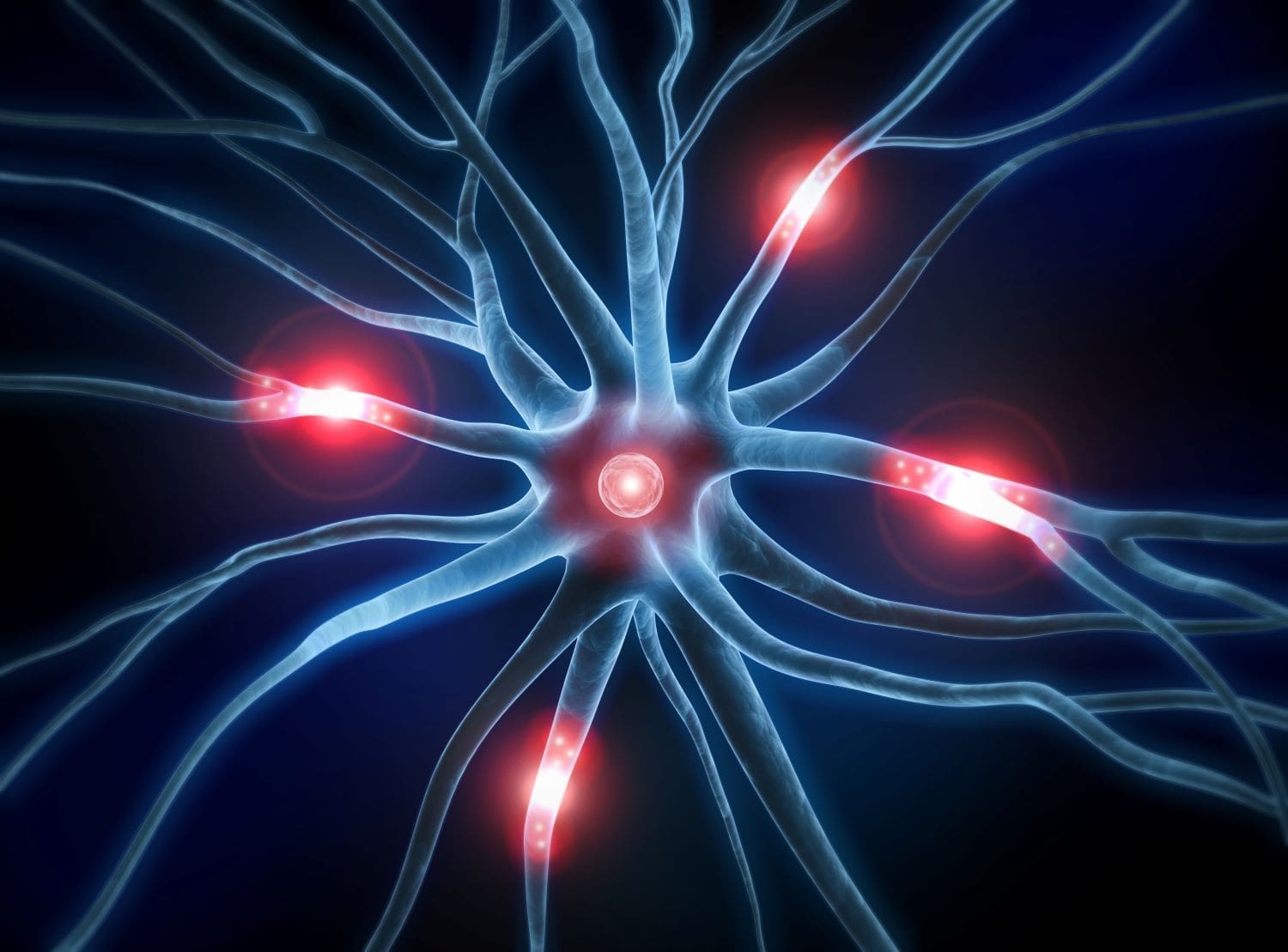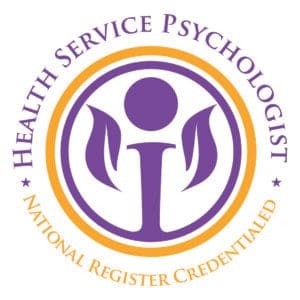
Trauma Therapy with Dr. Ginny Estupinian, Ph.D, ABPP
Trauma therapy at our Los Gatos practice provides specialized treatment for adults experiencing PTSD, complex trauma, and trauma-related disorders. Dr. Estupinian, a board-certified clinical psychologist, offers evidence-based interventions with particular expertise in treating executives, healthcare professionals, and high-performing individuals in Silicon Valley.
Quick Facts:
- Duration: 12-24 sessions, typical for single-incident trauma; complex trauma may require longer
- Session Length: 50-90 minutes, depending on treatment modality
- Specializations: difficult trauma, workplace PTSD, physician burnout, complex developmental trauma
- Credentials: Ph.D. in Clinical Psychology, ABPP Board Certification, Health Service Psychologist, American Academy of Clinical Psychology
- Location: Los Gatos, CA (serving Silicon Valley, Saratoga, Campbell, Monte Sereno), Bay Area
- Licensed: California, Oregon, and Illinois – Florida (Telehealth only)
What is Trauma
Trauma is a pervasive and deeply impactful experience that affects far more individuals than many realize. Research indicates that as many as 75% of Americans have encountered some form of trauma in their lives, revealing the startling prevalence of this issue in our society. Trauma is an emotional response to terrible events such as accidents, rape, violent acts, or natural disasters. Initial reactions often include shock and denial, but long-term effects can be far-reaching and complex.
The Mental Health Impact of Trauma
The consequences of trauma exposure are multifaceted, affecting both mental and physical health. In terms of mental health, trauma has been strongly linked to the development of various disorders. Individuals who have experienced trauma are at a higher risk of struggling with depression, grappling with substance abuse, or developing post-traumatic stress disorder (PTSD). These mental health challenges can profoundly affect daily functioning and overall well-being.
Some People Dealing With Trauma Will:
Isolate themselves
Shut down
Self-medicate themselves with alcohol and drugs
Cut and self-mutilate their bodies
among other things
Physical Health Consequences of Trauma
Moreover, the impact of trauma extends beyond mental health, often manifesting in physical ailments. Studies have shown a concerning connection between trauma exposure and the development of serious physical health problems. Heart disease, chronic lung conditions, and liver diseases have all been associated with a history of trauma, highlighting the complex interplay between psychological experiences and physical health.
Types of Trauma
It’s important to understand that trauma can manifest in various forms:
- Acute trauma: Resulting from a single incident (e.g., a car accident, natural disaster, or violent attack)
- Chronic trauma: Repeated and prolonged exposure to traumatic situations (e.g., ongoing domestic violence or child abuse)
- Complex trauma: Exposure to multiple traumatic events, often of an invasive, interpersonal nature
- Developmental trauma: Occurring during childhood, which can significantly impact brain development and attachment
- Intergenerational trauma: Trauma that is passed down through generations within families or communities
Long-Term Effects of Untreated Trauma
When left untreated, trauma can have far-reaching and long-lasting effects on an individual’s life:
- Physical Health: Trauma has been associated with physical health problems such as heart disease, chronic lung conditions, and liver diseases. The constant state of stress can weaken the immune system and increase the risk of autoimmune disorders.
- Mental Health:
 Untreated trauma can lead to the development or exacerbation of various mental health disorders, including depression, anxiety, and personality disorders.
Untreated trauma can lead to the development or exacerbation of various mental health disorders, including depression, anxiety, and personality disorders. - Relationships: Trauma can significantly impact one’s ability to form and maintain healthy relationships, leading to social isolation or patterns of dysfunctional relationships.
- Economic Impact: Trauma can result in lost work productivity, increased healthcare costs, and potential loss of employment opportunities.
- Substance Abuse: Many individuals with untreated trauma turn to substances as a coping mechanism, leading to addiction issues.
- Quality of Life: Overall, untreated trauma can severely diminish one’s quality of life, affecting every aspect, from personal relationships to professional achievements.
The Neurobiological Impact of Trauma
When we experience trauma, it affects us both mentally and physically. Our bodies carry the weight of traumatic experiences, manifesting in overwhelming sensations. While our minds may attempt to move on logically, the impact on our bodies often persists. This internal struggle between mind and body serves as a constant reminder of the trauma’s enduring effects.
How Trauma Affects the Brain
Trauma can cause significant changes in the brain’s structure and function:
- Amygdala: This area,
 responsible for processing emotions, often becomes hyperactive in trauma survivors, leading to heightened fear responses.
responsible for processing emotions, often becomes hyperactive in trauma survivors, leading to heightened fear responses. - Hippocampus: This region, crucial for memory formation, can shrink due to trauma, affecting the ability to distinguish between past and present experiences.
- Prefrontal Cortex: This area, involved in decision-making and emotional regulation, may show reduced activity, making it harder for trauma survivors to manage their emotions and impulses.
Impact on the Nervous System
Trauma can dysregulate the nervous system, leading to a persistent state of hyperarousal (fight-or-flight) or hypoarousal (freeze). This can result in:
- Difficulty returning to a
 calm state after stress
calm state after stress - Overreaction to minor stressors
- Chronic fatigue or feeling “shut down.”
Understanding these neurobiological effects is crucial in developing effective treatment strategies and fostering empathy for trauma survivors.
Trauma-Informed Care
At my office, I adhere to the principles of trauma-informed care, which recognizes the widespread impact of trauma and paths to recovery. This approach is built on six key principles:
- Safety: Ensuring physical and emotional safety for clients
- Trustworthiness and Transparency: Building and maintaining trust through clear communication and boundaries
- Peer Support: Facilitating connections with others who have had similar experiences
- Collaboration and Mutuality: Sharing power and decision-making between providers and clients
- Empowerment, Voice, and Choice: Recognizing and building upon clients’ strengths and experiences
- Cultural, Historical, and Gender Issues: Moving past cultural stereotypes and biases and incorporating policies and practices that are responsive to clients’ cultural needs
By implementing these principles, I have created an environment that is conducive to healing and avoids re-traumatization.
Trauma in Special Populations
It’s important to recognize that trauma can affect different groups in unique ways:
Children and Adolescents
Trauma during childhood can significantly impact brain development, attachment styles, and future relationships. Children may exhibit symptoms differently from adults, such as through behavioral regression, school difficulties, or somatic complaints.
Elderly Individuals
Older adults may have accumulated multiple traumatic experiences throughout their lives. They may also be at risk for new traumas, such as elder abuse or the traumatic loss of loved ones and independence.
LGBTQ+ Community
Members of the LGBTQ+ community often face unique traumas related to discrimination, rejection, and violence. This can compound with other traumatic experiences, leading to complex trauma presentations.
Refugees and Immigrants
These populations often experience multiple traumas, including war, persecution, and the stress of adapting to a new culture. Language barriers and cultural differences can complicate trauma treatment.
First Responders and Healthcare Workers
These professionals are repeatedly exposed to others’ traumas, putting them at risk for secondary traumatic stress or compassion fatigue. The COVID-19 pandemic has further highlighted the trauma risks for healthcare workers.
Understanding these unique contexts allows us to provide more targeted and effective trauma treatment for diverse populations.
Post-Traumatic Stress Disorder (PTSD)
While PTSD is often associated with combat veterans, it can affect anyone who has experienced a traumatic event. PTSD can develop after exposure to any potentially traumatic event that is beyond a typical stressor. Some events that may lead to PTSD include:
- Violent personal assaults
- Domestic violence
- Natural disasters
- Accidents
- Combat and other forms of violence

According to PTSD United, Inc., 70% of American adults have experienced a significant traumatic event at least once in their lifetime, and 20% of those individuals developed some level of PTSD. The Institute of Mental Health estimates that 3.6% of U.S. adults had PTSD in the past year. Interestingly, studies have shown that women are twice as likely to experience PTSD compared to men.
Individuals with PTSD may experience:
- Vivid nightmares
- Flashbacks
- Difficulty expressing emotions
- Avoidance of trauma reminders
- Hypervigilance
- Anger and irritability
- Trouble focusing and being productive at work
Grief, Loss, and Trauma
Grief and loss are natural processes that everyone experiences after the departure of someone or something significant in their life. While often associated with death, grief can be triggered by various circumstances, including trauma.
 Grief is a complex emotional, psychological, and physical response to loss. It encompasses a range of emotions such as sadness, anger, guilt, confusion, and even relief. The grieving process is unique to each individual and shaped by factors like personality, culture, and previous experiences.
Grief is a complex emotional, psychological, and physical response to loss. It encompasses a range of emotions such as sadness, anger, guilt, confusion, and even relief. The grieving process is unique to each individual and shaped by factors like personality, culture, and previous experiences.
In the context of trauma, grief and loss become intricately intertwined. Traumatic events can shatter an individual’s sense of safety, trust, and well-being, leading to significant emotional trauma. Traumatic grief often involves a complicated mixture of emotions as individuals grapple with not only the loss itself but also the impact of the traumatic event. This can include feelings of survivor guilt, intrusive memories, anxiety, and even symptoms of PTSD.
It’s important to recognize that grief and loss following trauma are not linear processes. They can be ongoing, with individuals experiencing waves of emotions and adjusting to the loss over time.
Seeking Help and Healing
The good news is that there are numerous effective ways to help individuals with PTSD and those dealing with trauma. It’s crucial to remember that there is no such thing as a “small trauma.” A person’s reaction to trauma is personal and individualized. No two people will experience a traumatic situation in the same way.
As social creatures, we all need validation and support. Working with a qualified professional can help integrate the traumatic experience, providing a better sense of understanding and control over the experience.



At the Office of Ginny Estupinian Ph.D., I offer specialized trauma-focused therapy that addresses the specific needs of individuals who have experienced PTSD or other difficulties related to traumatic life events. Our therapeutic approach involves:
- Building essential skills to confront past trauma
- Gaining insight and understanding of traumatic experiences
- Working on coping with everyday challenges
- Implementing practical solutions for emotional regulation
- Establishing trust and setting boundaries
- Creating emotional and physical safety
I also incorporate approaches like somatic therapy to address the bodily sensations associated with trauma, helping to reinstate a healthy and comfortable mind-body connection.
My goal is to assist you in identifying the root causes of your distress and empower you to make the necessary changes in your life. In our supportive, confidential environment, I strive to foster a sense of security and trust.
Over the last decade, I have worked with various individuals who have been victims of severe trauma, including clients from the Center for Survivors of Torture and the Veterans Administration. I have experience with complex post-traumatic stress disorder and associated issues, as well as helping clients who have been victims of highly publicized crimes, shootings, natural disasters, and other severe tragedies.
Remember, healing from trauma is a process that requires commitment and guidance. I provide the tools, support, and therapeutic approaches to help you on your healing journey. I firmly believe in your ability to overcome the effects of trauma, and I am here to support you every step of the way.
Who Benefits from Trauma Therapy
Immediate Indicators for Treatment:
- Intrusive memories or flashbacks disrupting work concentration
- Avoiding people, places, or situations that trigger distress
- Hypervigilance affecting sleep and relationships
- Emotional numbing or detachment from family
- Physical symptoms: chronic pain, digestive issues, autoimmune flares
- Substance use to manage emotional pain
- Relationship difficulties stemming from trust issues
Professional/Executive Specific Indicators:
- Performance anxiety following workplace incident
- Difficulty making decisions after traumatic failure
- Avoiding career advancement due to past trauma
- Hypervigilance in meetings or presentations
- Inability to delegate due to trauma-based control needs
- Burnout compounded by unresolved trauma
What to Expect at Your First Appointment:
Your initial 50-minute session includes comprehensive assessment, treatment planning, and immediate stabilization techniques you can use right away. Dr. Estupinian will explain how trauma has affected your specific brain systems and outline a personalized treatment pathway based on your goals and timeline.
Located in Los Gatos: Conveniently serving Silicon Valley professionals from San Jose, Saratoga, Campbell, Cupertino, and the greater Bay Area. Private parking and a discreet entrance ensure confidentiality for executives and public figures.
Schedule Your Trauma Assessment: Call 844-802-6512 or book online for immediate availability. Evening and early morning sessions are available for working professionals.
For more information on how we can help, please call my office or book online below
Call 844-802-6512
Trauma Treatment Services
Contact Us
You Are Cordially Invited To Call Our Office With Any Questions You May Have
Frequently Asked Questions - Trauma Treatment
What is trauma and how do I know if I need treatment?
Trauma is an emotional response to distressing events such as accidents, assault, natural disasters, or ongoing stressful situations. You may benefit from trauma treatment if you’re experiencing intrusive memories, nightmares, emotional numbness, avoiding reminders of the event, hypervigilance, difficulty trusting others, or physical symptoms like chronic pain or digestive issues. As many as 75% of Americans have experienced some form of trauma, so seeking help is more common than you might think.
What's the difference between "small" trauma and "big" trauma?
There’s no such thing as a “small trauma”. Your reaction to traumatic events is personal and individualized. What matters isn’t the size of the event but how it has affected your nervous system, relationships, and daily functioning. Dr. Estupinian treats all trauma with equal seriousness, whether it’s a single incident or complex, developmental trauma from childhood.
How is trauma therapy different from regular talk therapy?
Trauma therapy with Dr. Estupinian goes beyond traditional talk therapy by addressing how trauma affects both your mind and body. Using somatic therapy techniques, we work with the bodily sensations and nervous system dysregulation that trauma creates. This approach helps reinstate a healthy mind-body connection, addressing the physical symptoms that often persist even when you logically understand the trauma is over.
What makes Dr. Estupinian's trauma treatment different from other therapists?
Dr. Estupinian is a board-certified clinical psychologist who provides doctoral-level psychological treatment rather than master’s-level counseling. With over a decade of experience treating severe trauma, including work with the Center for Survivors of Torture and Veterans Administration and Santa Clara Valley Hospital System, she brings specialized expertise in complex PTSD and trauma-related disorders. Her neuropsychological training allows her to understand how trauma affects brain function and executive performance.
What types of trauma does Dr. Estupinian treat?
Dr. Estupinian has extensive experience treating:
- Acute trauma from single incidents (accidents, assaults, natural disasters)
- Complex PTSD from repeated traumatic experiences
- Developmental trauma from childhood
- Workplace trauma and executive burnout
- Medical trauma and health-related PTSD
- Trauma from highly publicized crimes and shootings
- Intergenerational and cultural trauma
What happens in the first session?
Your initial session involves a comprehensive assessment to understand your trauma history, current symptoms, and treatment goals. Dr. Estupinian will explain how trauma has affected your nervous system and brain function, and develop a personalized treatment plan. You’ll also learn immediate coping strategies you can begin using right away to manage symptoms.
How long does trauma therapy take?
Treatment length varies based on trauma complexity and individual needs. Single-incident trauma may resolve in 12-20 sessions, while complex or developmental trauma typically requires 6-12 months of consistent therapy. Dr. Estupinian will provide a realistic timeline after your initial assessment, with regular progress evaluations to ensure treatment effectiveness.
How often are therapy sessions scheduled?
Most clients begin with weekly sessions to establish momentum and build therapeutic rapport. As you progress and develop coping skills, sessions may move to biweekly or monthly. Consistency is crucial for trauma healing, as your nervous system needs regular support to rewire trauma responses.
Can trauma therapy be done online?
Dr. Estupinian offers both in-person sessions at her Los Gatos office and teletherapy options for California, Oregon, Florida, and Illinois residents. Many trauma interventions translate effectively to online formats. The choice between in-person and online therapy depends on your comfort level and specific treatment needs.
I'm a corporate executive. Will therapy affect my career?
Dr. Estupinian specializes in treating high-performing professionals and understands the unique pressures of executive roles. Treatment is completely confidential, and many executives find that addressing trauma actually enhances their leadership capabilities, decision-making, and stress management.
I'm a healthcare professional with trauma. Can you help?
Yes. Dr. Estupinian has specific expertise in treating physicians, nurses, and other healthcare professionals dealing with workplace trauma, COVID-related PTSD, and secondary traumatic stress. With 10 years of experience working within the Santa Clara Valley Hospital System, she has firsthand knowledge of the healthcare environment and the unique stressors medical professionals face.
Dr. Estupinian understands the unique challenges of maintaining professional functioning while processing trauma, including:
- The pressure to appear “strong” while treating patients
- Moral injury from system constraints and difficult decisions
- Secondary trauma from patient losses
- The isolation that comes from confidentiality concerns
- Balancing caregiver roles with personal healing
Her decade of experience in the hospital system means she speaks your language and understands the realities of medical culture, making it easier to open up about workplace trauma without extensive explanation.
What if I can't remember all the details of my trauma?
You don’t need to remember everything to benefit from treatment. Perfect memory is not required for trauma therapy, and memory gaps are actually normal – when trauma occurs, your brain prioritizes survival over encoding detailed memories. This is why many trauma survivors have fragmented or incomplete recall.
Dr. Estupinian focuses on the current impact of trauma (your emotions, beliefs, and symptoms) rather than reconstructing every detail of what happened. She works with whatever you can access – whether that’s clear memories, physical sensations, emotional fragments, or recurring themes. The therapy process adapts to what you can recall, using available elements like:
- Body sensations and somatic responses
- Emotional patterns and triggers
- Memory fragments or impressions
- Current symptoms and their impact
- Recurring thoughts or beliefs
How do I know if I'm ready for trauma therapy?
If trauma is affecting your work, relationships, sleep, or physical health, you’re ready. You don’t need to wait until you’re in crisis. Many clients wish they had started sooner. The fact that you’re researching treatment options suggests you’re ready to begin healing.
I've tried therapy before without success. Why would this be different?
Previous therapy may have focused only on talking about trauma without addressing the neurobiological and somatic impacts. Dr. Estupinian’s integrated approach combines psychological, neurological, and body-based interventions. Her doctoral training and board certification ensure you’re receiving the highest level of psychological treatment available.
Schedule Your Appointment Today
We’re here to help!
Call us at 844-802-6512
or
Book your appointment online with ease.
Our team is ready to assist you with any questions you have and provide the support you need.
 Untreated trauma can lead to the development or exacerbation of various mental health disorders, including depression, anxiety, and personality disorders.
Untreated trauma can lead to the development or exacerbation of various mental health disorders, including depression, anxiety, and personality disorders. responsible for processing emotions, often becomes hyperactive in trauma survivors, leading to heightened fear responses.
responsible for processing emotions, often becomes hyperactive in trauma survivors, leading to heightened fear responses. calm state after stress
calm state after stress